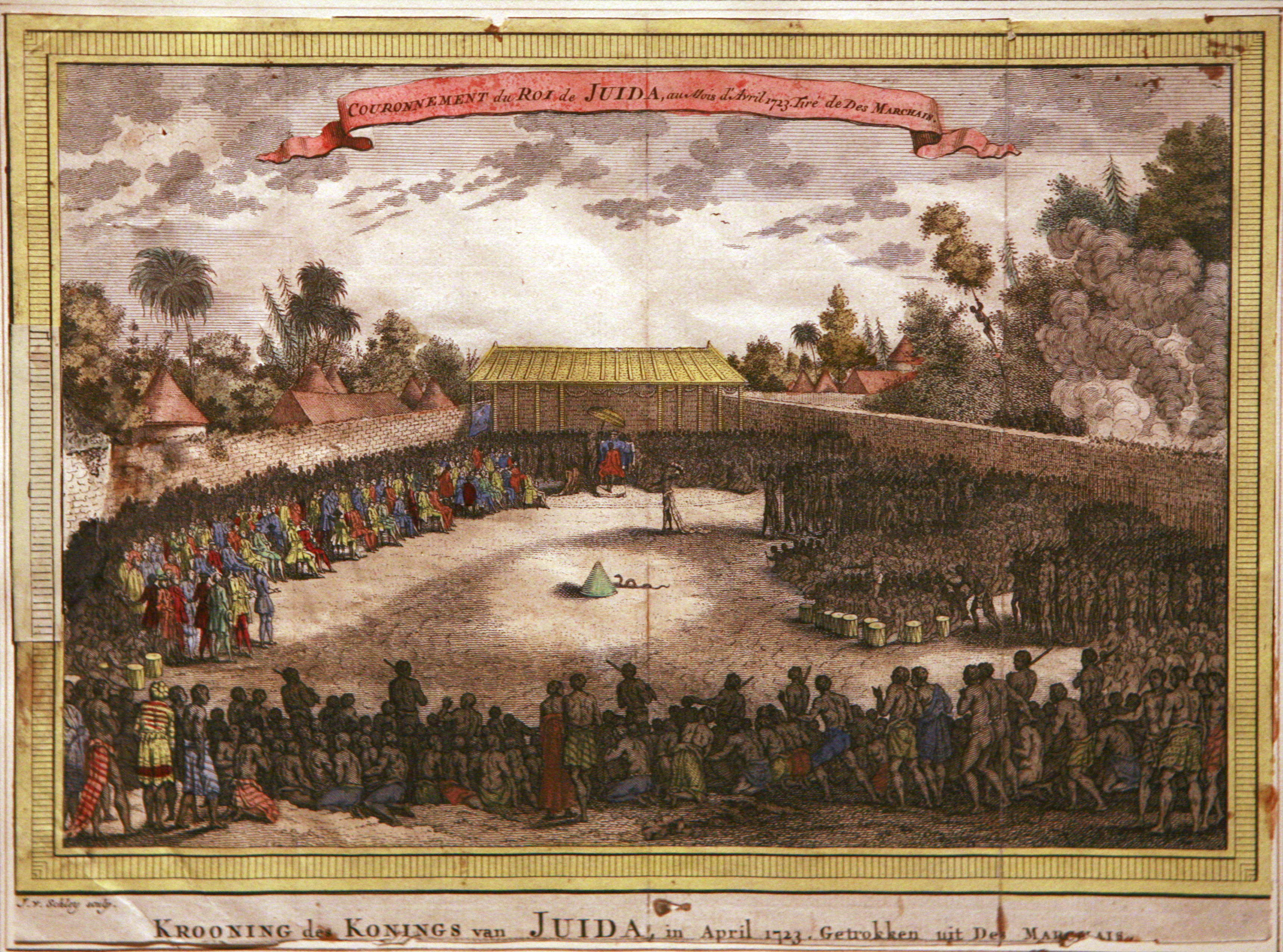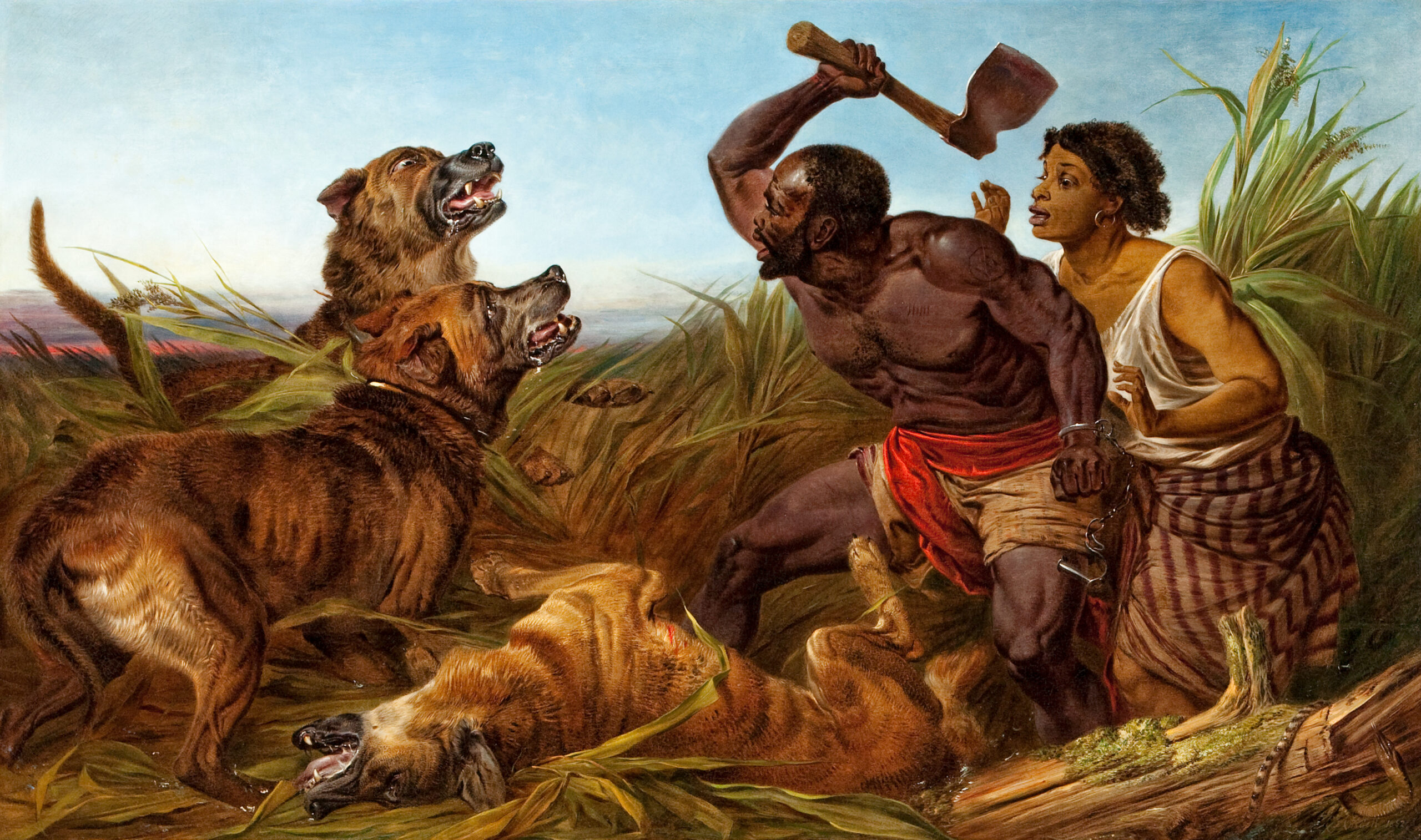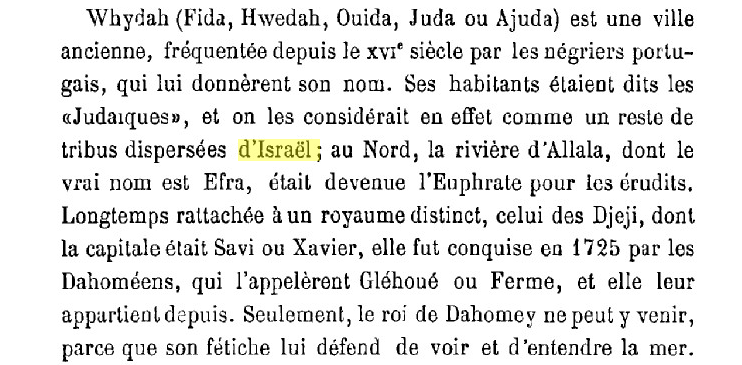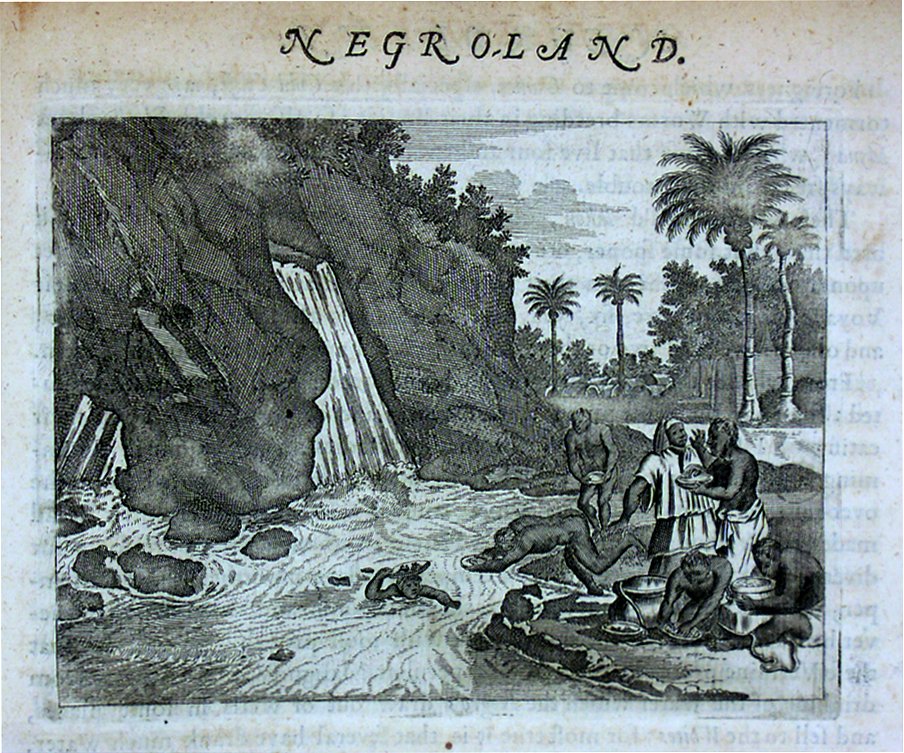
More Info
“Some of the kidnapping tales that still linger on this coast, show the straits into which, at times, men were driven for a cargo. At Annobom, where the people are Negro Portuguese, they are ever looking forward to hearing mass from the mouth of a priest. A Spaniard learning this, dressed up a pair of ecclesiastics, landed them, and whilst the function was proceeding, seized the whole congregation, and carried them triumphantly to market.” (p 23)
The entire book is an account of the author’s experiences in West Africa. This Negro-Portuguese congregation was kidnapped from West Africa, in the middle of worship service, and sold into the Transatlantic Slave Trade.
“There are some four “Ajudo” hereabouts, all so called by the old De Souza, meaning “ Deos me ajudo” God helped me. Some wrongly write Ajido. Others prefer Ajuda, help, aid; the full phrase being “ Com ajuda de Deos, hence the Ajuda Palace, in Portugal. From directions of letters, I believe Ajuda and Ayuda to be the popular Portuguese and Brazilian names for Whydah” (p 104)
A List of Names From West Africa
The historical significance of these names is still to be determined, but the name “de Souza” is a common occurrence among older documents dealing with Portugal and the Portuguese.
“The following is a list of the Portuguese, Brazilians, mulattos,
and civilized Africans now remaining at the great mart. Five Por¬
tuguese, viz.:—
- Antonio Yiera da Silva, established at Whydah, Grand-Popo, and
Agwe. - Francisco de Souza Maciel.
- Ignacio de Souza Magallaes; Whydah, Porto Novo, and Badagry,
- Jacinto Joaquim Rodriguez; Whydah and Porto Novo.
- J. Suares Pereira: Whydah and Agwe.
Fourteen Brazilians:— - Francisco Antonio Monteiro.
- F. J. Medeiros, now at Agwe (some say he is a Portuguese, born
in the United States). - Francisco Olimpio Silva, at Porto Seguro.
- Marco Borges Ferras.
- Joao Pinheiro de Souza, commonly called Taparica.
- Gulielme Martins do Nascimento.
- Marcelino dos Martins Silva.
- Ricardo Augusto Amadie: he speaks French and English.
- Joao Victor Angelo.
A WALK ROUND WHYDAH. 7 o
vivors engaged in cotton or in palm-oil—the “ doulo-
meter of the slave-trade ”—or in nothing.
M. Martinez had his good points : he was always
courteous and hospitable, even to his bitterest enemies,
the English ; morever, to his praise be it spoken, he - Jose Francisoo dos Santo, commonly called Alfaiate, ‘i.e., the
Tailor. - Angelo Custodio das Chagas.
- Joao Antonio Dias.
- Francisco Giorge.
- Domingo Rafael Martinez, son of J. Domingo Martinez.
And four Brazilian women, viz.:— - Maria Elena do Carmo.
- Benvinde Teresa de Jesus.
- Leopoldina Teresa de Jesus.
- Maria da Piedade do Nascimento.
N.B. There are a few Brazilians of minor importance attached to the
above houses.
The ten following are Africans or Brazil liberateds, who are mostly
Nagos (Egbas) or Whydah men. None of them are at all important, and
there are a few others whose names do not deserve mention. - Joao Antonio de Rego.
- Elisbao Lino.
- Thobias Barreto Brandao.
- Joaquim das Neves.
- Damiao de Oliviera, who is considered the best mason at Whydah.
- Antonio d’Almeida.
- Jose de Fonseca Muniz, the son of the late J. C. Muniz.
- Pedro Pinto da Silveira. This is the well-known slaver, Pedro
Cogio, of Little Popo. He has a son residing at Whydah, and managing
the affairs of Jose Alfaiate. His name is, - Domingo Francisco da Silveira.
- Pedro Fellis d’Almeida.
All these are “ God-men,” which, in Anglo-African, is opposed to
“devil-men,” or heathenry.” (p 74 – 75)









